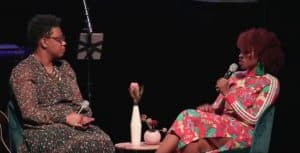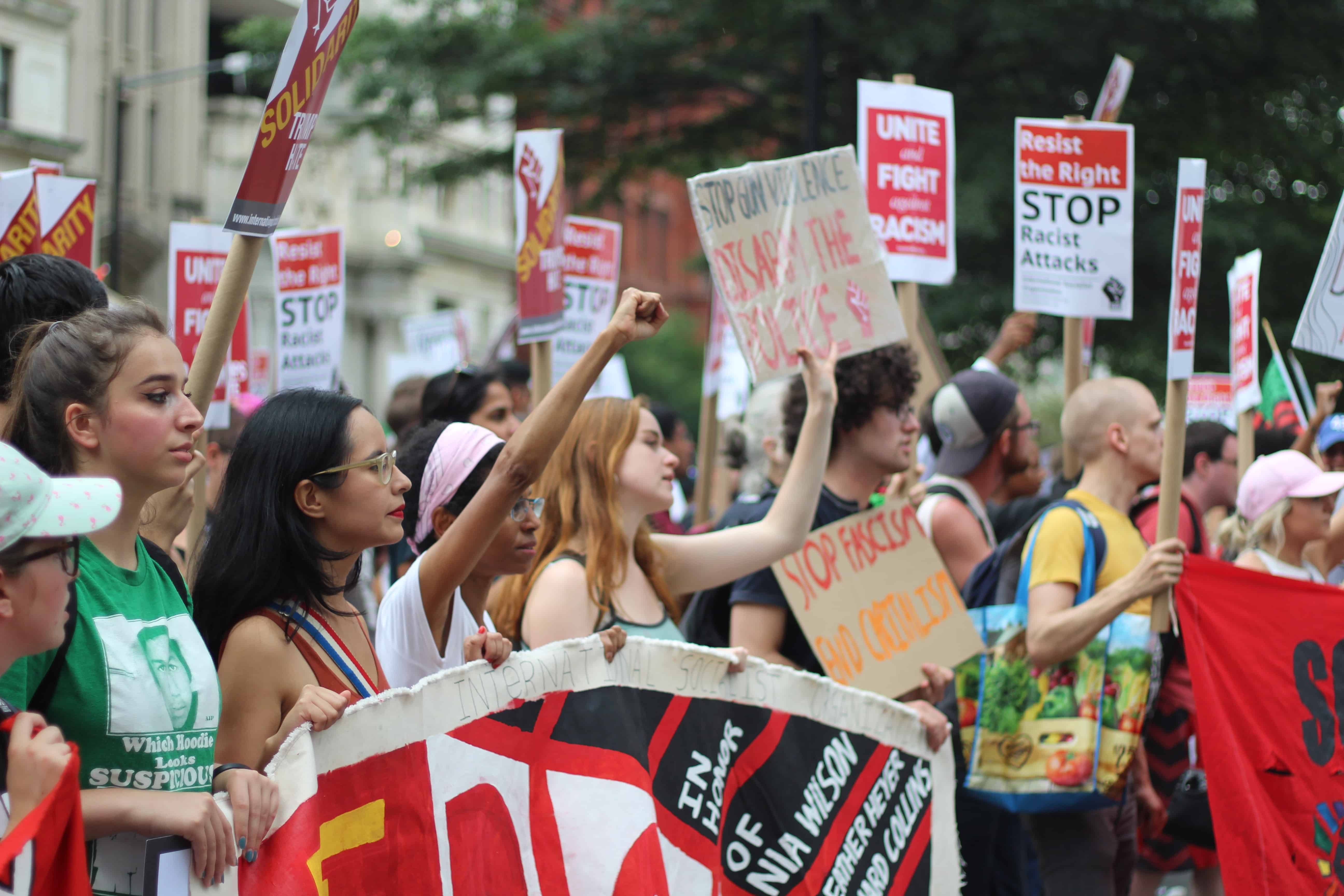The complete article is available here.
Exhibit 4: It Isn’t Just About Reparations, but About a Great Deal More

Samuel Sey is a Christian blogger, a resident of Toronto, and an observer of the culture and the church’s role in it. Recently he posted an article on his website titled “Whiteness, Blackness, Christless.” He begins by noting that the movement for racial reconciliation, you would think, ought to be eschewing racism and uniting white and black believers. But it isn’t. He pointedly asks, “If the racial reconciliation movement is designed to produce unity, why are so many of its leaders divisive?”
The Sparrow Conference, a Christian women’s event, was supposed to be about racial reconciliation. One of the speakers was Ekemini Uwan. Uwan is a co-host on the Truth’s Table Podcast and a writer whose articles have appeared in Christianity Today, the Huffington Post Black Voices, and The Witness: A Black Christian Collective. According to the her bio on her website,
Ekemini…is passionate about sound theology, … [and] has a fierce commitment to biblical orthodoxy and its implications for issues pertaining to racial injustice, anti-black racism, and white supremacy.
In an interview held onstage at the Sparrow Conference, Uwan said this. Please don’t just read her words—read them as you listen to her speak.

So then when we talk about white identity, then we have to talk about what whiteness is. Well, the reality is that whiteness is rooted in plunder, in theft, in slavery, in enslavement of Africans, genocide of Native Americans…It’s a power structure, that is what whiteness is, and so that the thing for white women to do is you have to divest from whiteness because what happened was that your ancestors actually made a deliberate choice to rid themselves of their ethnic identity and by doing so they actually stripped Africans in America of their ethnic identity…Because we have to understand something – whiteness is wicked. It is wicked. It’s rooted in violence, it’s rooted in theft, it’s rooted in plunder, it’s rooted in power, in privilege.
People chose whiteness – they chose a man to be elected in office who is all about whiteness…So there’s real political consequences in here, so you have to divest from whiteness, you have to divest from patriarchy, white women specifically – because over 50% of you all voted for Trump and you got to ask yourself why.”
Uwan’s statements about whiteness prompted “several” of the attendees to walk out. After quoting Uwan, Sey noted that she claimed her statements were not meant to attack whites. Yet he challenged this assertion, noting also that
her reasoning and rhetoric in that interview suggest otherwise. Whiteness is a racist concept [invented] by critical race theorists. Whiteness ties White identity with White supremacy. It suggests that White people have unconscious, implicit biases against non-White people, especially Black people. According to Whiteness studies, it’s natural for White people to be White supremacists. And that is why people like Ekemini suggest that White people need to divest from Whiteness so they can become “allies” to Blackness—allies to oppressed Black people.
The critical theory and Marxism have become a driving force within the racial reconciliation movement. Despite all evidence, many refuse to accept this fact. But at the end of her onstage interview, Ekemini recommended books by two self-proclaimed Marxist authors, David R. Roediger and Noel Ignatiev. And her colleague, Jemar Tisby has openly embraced James Cone’s heretical, Marxist Black liberation theology.
Although radical, these ideas have spread far and wide in the evangelical world. Among numerous evangelical leaders, Critical Race Theory and Marxist teachings are being upheld. We see Marxist elements, for example, the social justice movement and in the push for reparations for slavery.
We also see efforts to soften what has been, in the past, the church’s strong stance against homosexuality. The Revoice conference is part of a movement to normalize homosexuality in the church, although up to this point, those in this movement still say homosexual sex is a sin and that according to the Bible, marriage is limited to one man and one woman for life. What, then, is the problem? There are several, including the teaching that a gay identity and a Christian identity can coexist.
Racist Underpinnings
Let’s return to the issue of race and the problems Samuel Sey cites in his article with what is ironically being called a racial reconciliation movement. It’s important to say that Sey doesn’t just condemn racism against whites, but racism and racial slurs against blacks as well. And so he should. He laments that the church in America is more divided over race and racial issues than it was a mere five years ago—yet ironically, in Christ, people of all races and ethnicities can become one. There is room for neither oppressors nor victims in Christ’s body! Sey rightly charges that “we’re abandoning biblical theology for worldly philosophies and political agenda that cannot unify God’s people the way the gospel does.” Samuel Sey is right!
In the environment that prevails, it isn’t surprising that racial reconciliation isn’t occurring. Note again these statements from Sey. Ekemini Uwan “recommended books by two self-proclaimed Marxist authors, David R. Roediger and Noel Ignatiev. And her colleague, Jemar Tisby has openly embraced James Cone’s heretical, Marxist Black liberation theology [BLT].” This doesn’t mean that everyone in the social justice movement espouses BLT. Nevertheless, it has gained increasing acceptance in recent years.
While Uwan, as a social justice warrior, accused President Trump (and by implication, conservatism) of racism, President Trump actually has been praised by a black pastor from Ohio as being “pro-black.” Moreover, Christian leader Dr. Michael L. Brown has stated, “Although there were certainly divisive aspects to Trump’s campaign there’s little hard evidence that he is a racist. And from the reports I hear from people close to him, he has a genuine burden to help the inner-cities, which are largely minority.”
Copyright © 2019 by B. Nathaniel Sullivan. All rights reserved.
top photo credit: Photo by Melany Rochester on Unsplash
